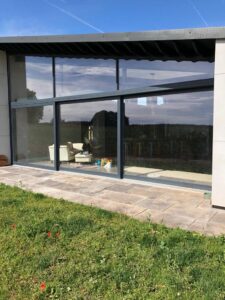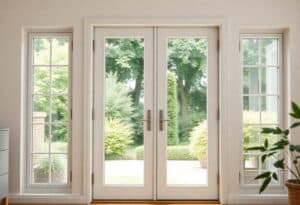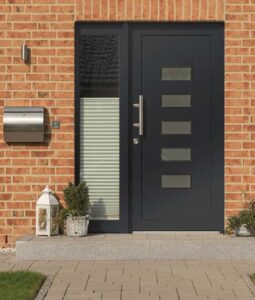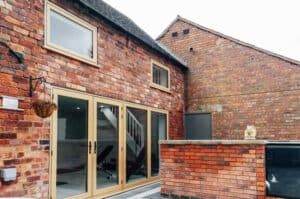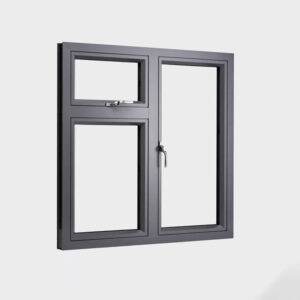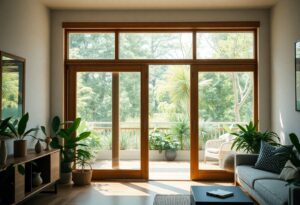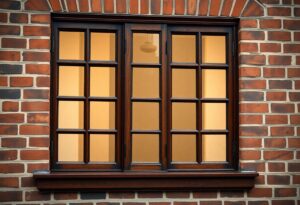You may be experiencing disturbances from external noise in your home or office, which can affect your comfort and concentration. Acoustic windows offer a solution that not only reduces sound pollution but also allows abundant natural light to enter your space. By expertly combining soundproofing technology with sleek design, these windows enhance your environment without sacrificing aesthetics. In this blog post, you will discover the benefits of acoustic windows and how they can improve your quality of life.
Understanding Acoustic Windows
For those seeking peace and tranquillity in their living spaces, acoustic windows offer an innovative solution to external noise pollution while allowing natural light to filter in. By combining advanced materials and construction techniques, these windows ensure that you can enjoy a quieter environment without sacrificing brightness. Understanding the features and benefits of acoustic windows can significantly improve your comfort level and quality of life.
Definition and Function
Against common perception, acoustic windows are specially designed to minimise sound transmission from outside while maintaining visibility and light penetration. These windows typically consist of multiple panes of glass with specific spacings and sealants that enhance their soundproofing qualities, which is markedly different from traditional windows that provide basic insulation. Choosing the right type of acoustic window is important for achieving the desired noise reduction in your home. (You may consider the specific noise challenges you face.)
Types of Acoustic Windows
Against a backdrop of noise reduction solutions, you can find various types of acoustic windows on the market, including single, double, and triple-glazed options. Each type comes with its own set of advantages, like enhanced sound insulation for double and triple-glazed units, making them ideal for urban environments with high noise levels. When selecting the type that suits your needs, you may want to consider the specific level of soundproofing required in your area. (Consulting with a professional installer can guide you in your decision.)
| Type | Advantages |
| Single-Glazed | Economically friendly but limited in sound reduction |
| Double-Glazed | Better insulation and moderate noise reduction |
| Triple-Glazed | Exceptional soundproofing and energy efficiency |
| Laminate Glass | Effective for low-frequency noise control |
| Custom Options | Tailored solutions for unique soundproofing needs |
At the core of your window selection, understanding the specific characteristics of each type is important for effective noise reduction. Acoustic windows enhance your living experience by providing comfort amidst external disturbances. (You should weigh the sound reduction needs against your budget.)
| Type | Key Feature |
| Single-Glazed | Thin construction, basic sound control |
| Double-Glazed | Two panes with air gap, good balance of cost and performance |
| Triple-Glazed | Three panes, superior noise and thermal barrier |
| Acoustic Laminated | Reduces transmission of lower frequencies |
| Advanced Composite | Custom-built with multiple materials for specific needs |
In addition, acoustic windows not only offer effective sound insulation but also contribute to energy efficiency, potentially reducing your heating bills. Understanding your lifestyle requirements and environmental factors is vital for making informed choices. (Ensure that you consult an expert to avoid costly mistakes.)
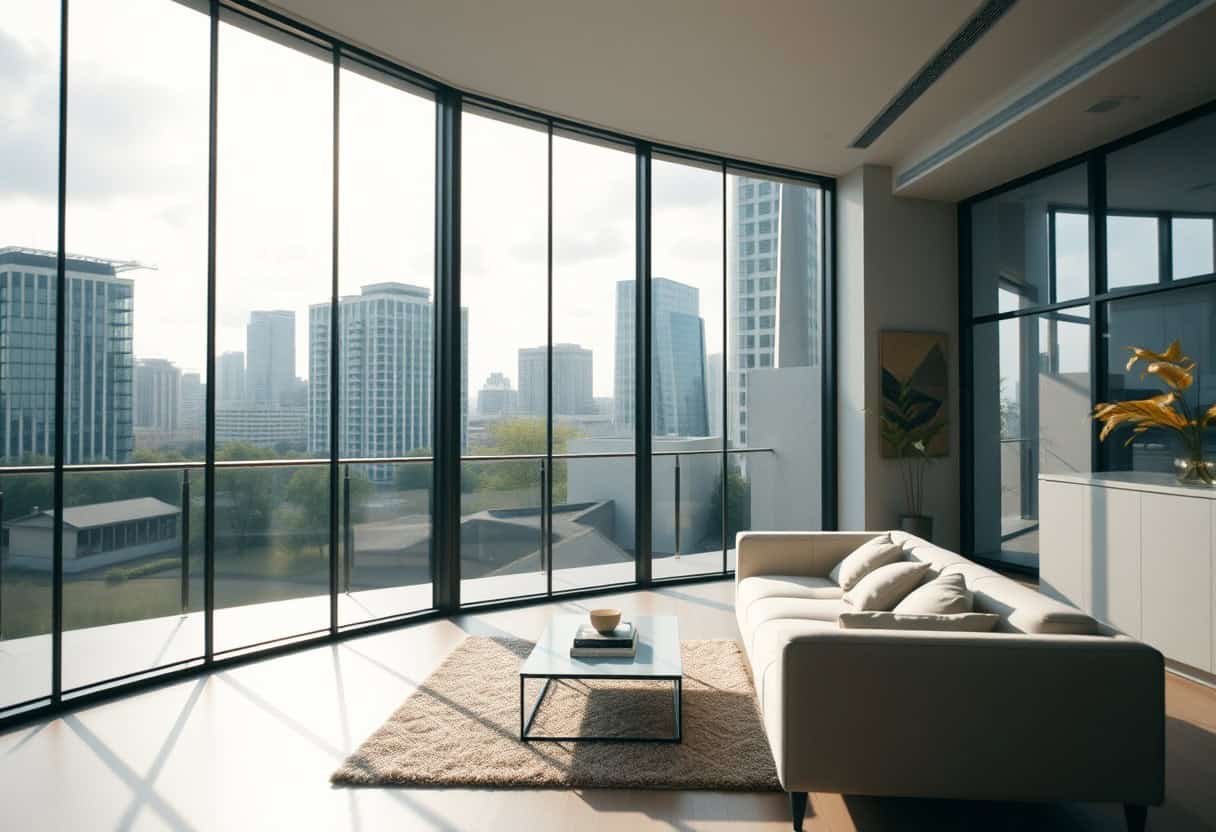
Benefits of Acoustic Windows
Assuming you are seeking a tranquil environment without sacrificing natural brightness, acoustic windows present numerous advantages. Their primary feature lies in their ability to significantly reduce external noise levels, creating a serene atmosphere in your home or workspace. Studies suggest that acoustic windows can lower noise by as much as 90%, providing a remarkable solution for those living in bustling urban areas or near busy roads.
Noise Reduction
An impressive characteristic of acoustic windows is their ability to insulate against sound. Research indicates that these specially designed windows can effectively diminish noise pollution by reducing decibel levels significantly. For instance, installations in urban environments have recorded reductions in sound levels by approximately 30 to 50 decibels, translating to a quieter, more peaceful indoor atmosphere.
Natural Light Retention
Light plays a vital role in your overall well-being and productivity. Acoustic windows are intelligently designed to enhance your living space by allowing ample natural light to filter through while still maintaining excellent noise reduction properties. This means you can enjoy bright, airy rooms without the constant disturbances of the outside world.
Natural light is crucial not just for illumination but for fostering a positive atmosphere in your home or office. Acoustic windows feature advanced technology, such as double or triple glazing, which enables them to effectively block noise while still permitting bright sunlight to enter. By investing in these windows, you protect your space from unwanted external sounds while creating an environment that promotes wellness and enhances your daily activities.
Installation Considerations
There’s a lot to think about when it comes to the installation of acoustic windows. To ensure they perform at their best, you’ll need to account for factors such as existing window frames, the sealing of gaps, and the overall structure of your home. Proper measurements and a suitable selection of materials are crucial to guarantee that you maximise the soundproofing benefits while still allowing natural light to enter your space.
Professional Installation
Between DIY enthusiasm and professional finesse lies the key to successful acoustic window installation. Engaging a professional installer ensures that optimal performance is achieved, as they possess the expertise to overcome common mistakes like improper sealing or misalignment that can arise from DIY efforts. Investing in expert installation can prevent costly remedial work down the line.
Cost Factors
The financial aspects of installing acoustic windows can vary widely based on several factors. You’ll need to consider materials, labour, and the potential energy savings that come with improved insulation over time. Set a realistic budget by seeking multiple quotes and assessing the long-term benefits. Assume that investing wisely can lead to noticeable differences in both your comfort and energy bills.
- materials selection influences costs
- labour charges can add significantly
- energy savings contribute to overall value
The total cost also includes considerations such as window size, frame materials, and any additional soundproofing features. The investment can appear daunting initially, but keep in mind that quality acoustic windows can reduce external noise significantly and enhance your living environment. Assume that these windows can also lead to long-term financial savings on your energy bills as an indirect benefit.
- window size affects material and labour costs
- energy efficiency can lead to cost savings
- investment in quality enhances performance
With careful planning and a clear understanding of your needs, you can ensure an effective installation of acoustic windows that balances both noise reduction and natural light enhancement. Your home will quickly become a more peaceful sanctuary, significantly improving your overall quality of life.
Acoustic Window Materials
Many factors contribute to the effectiveness of acoustic windows, with the choice of materials playing a pivotal role. Utilising specific soundproof materials can significantly enhance your window’s ability to reduce external noise while still allowing natural light to flow through your space. Selecting the right combination of glass and frame materials ensures optimal sound attenuation and durability, helping you create a tranquil environment without sacrificing style.
Soundproof Glass Options
Among the various soundproof glass options available, laminated and tempered glass are two highly effective choices. Laminated glass consists of two or more layers of glass bonded together with an interlayer, which not only improves sound attenuation but also adds an element of safety. Tempered glass, on the other hand, is heat-treated for increased strength, making it less prone to breakage. Both types play an imperative role in minimising noise pollution while maintaining a bright and inviting atmosphere in your home or office.
Frame Materials
Around the selection of frame materials, you will find options such as vinyl, wood, and aluminium, each impacting acoustic performance and durability. Vinyl frames are typically favoured for their energy efficiency and resistance to moisture, whereas wood provides excellent insulation and aesthetic appeal. Aluminium, while less effective in sound insulation, offers unparalleled strength and durability. (Choosing the right frame material is imperative for maximising your acoustic window’s potential.)
Materials used for window frames should suit your specific needs. Vinyl frames excel in insulation and require minimal upkeep, making them a practical choice for soundproofing. Wood, while beautiful, demands regular maintenance and might expand or contract with temperature changes, potentially affecting your window’s seal and performance. Aluminium frames, while sturdy, may necessitate additional insulation measures to optimise sound reduction. (Selecting the appropriate frame material ultimately impacts both the effectiveness and longevity of your acoustic window solution.)
Materials and their construction determine your acoustic window’s overall success. The right combination of soundproof glass and frame material has the power to significantly reduce outside noise, enhancing your comfort in noisy environments. Prioritising quality and durability in your design choices will lead to a better outcome for your acoustic needs.
Regulatory Standards and Ratings
Not all windows are created equal when it comes to sound insulation. Understanding regulatory standards and ratings specific to acoustic windows is crucial for ensuring you select products that effectively reduce noise without sacrificing the natural light you desire. These standards help assess the performance capabilities of windows, guiding your purchasing decisions.
Acoustic Ratings
Behind every effective acoustic window are crucial acoustic ratings such as the Sound Transmission Class (STC) and the Outdoor-Indoor Transmission Class (OITC). These ratings provide insights into how well a window can reduce external noise, enabling you to make informed choices that meet your specific noise reduction needs. Higher ratings indicate better soundproofing qualities, helping you select the right products for a quieter home environment.
Building Codes and Regulations
Regulatory standards also encompass various building codes and regulations that dictate the installation of acoustic windows in noise-sensitive areas. These guidelines ensure that you comply with local standards, enhancing safety and performance while maintaining your property’s integrity. Understanding these rules is crucial when considering acoustic windows for your home.
Consequently, adhering to building codes and regulations is imperative for a successful installation of acoustic windows. Familiarising yourself with local ordinances ensures you avoid potential fines, while also promoting a safe living environment. This careful compliance supports the effective absorption of sound, creating a more serene atmosphere in your home. Moreover, non-compliance can lead to costly modifications, so taking the time to understand these regulations is a positive step towards enhancing your living space.
Maintenance and Care
Once again, maintaining your acoustic windows is vital for ensuring they continue to reduce external noise effectively. Regular upkeep will enhance their performance and lifespan. For tips on soundproofing your window, you can refer to What are some ways I can soundproof my window in a ….
Cleaning and Upkeep
On a practical note, cleaning your acoustic windows is simple yet effective. Use a soft cloth or a sponge with warm, soapy water to wipe the glass. Avoid abrasive materials that could scratch the surface or damage soundproofing seals. It’s advisable to check the manufacturer’s guidelines for any specific cleaning requirements.
Regular Inspections
Behind the scenes, regular inspections are necessary for maintaining your acoustic windows. Check for signs of wear and tear, particularly around the seals and frames. Keeping an eye on these elements can help you identify potential issues early, which is vital for maintaining their noise reduction abilities. (Investing time in regular checks can save you from costly repairs later.)
Considering the importance of proactive maintenance, conducting thorough inspections will allow you to spot any *deteriorating seals* or *damaged frames* before they affect soundproofing performance. *Addressing small issues now* can lead to *significant benefits* in comfort and tranquillity. (Taking these steps will enhance your living environment.)
To wrap up
Hence, by choosing acoustic windows, you can significantly reduce external noise while still allowing ample natural light into your space. These windows offer an effective solution for maintaining a peaceful environment without sacrificing the benefits of daylight. As you consider your options for improving your home’s acoustics, it’s imperative to recognise the value of investing in quality acoustic windows to enhance your comfort and overall living experience.
FAQ
Q: What are acoustic windows?
A: Acoustic windows are specially designed windows that reduce external noise while allowing natural light to enter a space. They typically incorporate multiple layers of glass and advanced sealing methods to limit sound transmission, making them ideal for homes and offices located in noisy environments.
Q: How do acoustic windows work to reduce noise?
A: The noise reduction in acoustic windows is achieved through several features, including thicker glass panes, laminated glass, and the use of air gaps between the panes. These elements work together to absorb and block sound waves, resulting in a quieter indoor environment.
Q: Will installing acoustic windows diminish the amount of light entering a room?
A: No, acoustic windows are designed to strike a balance between noise reduction and light transmission. They are available in various designs and styles that maximise natural light while still providing effective sound insulation. These windows can help maintain a bright and airy feel within a space.
Q: Are acoustic windows suitable for all types of buildings?
A: Yes, acoustic windows can be installed in various types of properties, including residential homes, commercial buildings, and even heritage structures. Custom solutions can be developed to fit different architectural styles, ensuring that the windows blend seamlessly with the existing aesthetics.
Q: What is the expected lifespan of acoustic windows?
A: The lifespan of acoustic windows can vary depending on the quality of materials used and the installation process. Generally, high-quality acoustic windows can last for several decades. Regular maintenance, such as cleaning the frames and seals, can help extend their longevity.
Q: How effective are acoustic windows in reducing specific types of noise?
A: Acoustic windows are particularly effective in reducing noise from road traffic, railway lines, and aircraft. However, their effectiveness can vary based on the frequency and intensity of the sound. Consulting with a specialist can provide tailored advice on the most suitable window types for specific noise issues.
Q: What are the costs associated with installing acoustic windows?
A: The costs for installing acoustic windows depend on various factors, including the size and type of window, the materials selected, and the complexity of the installation. While the initial investment may be higher than standard windows, many customers find that the long-term benefits of reduced noise and increased comfort justify the expense.

